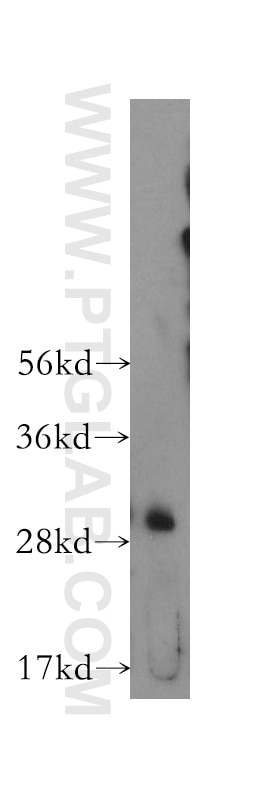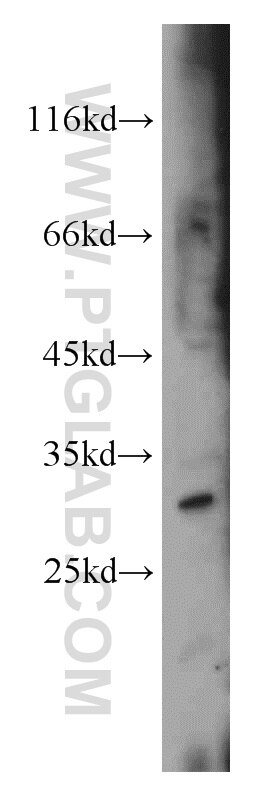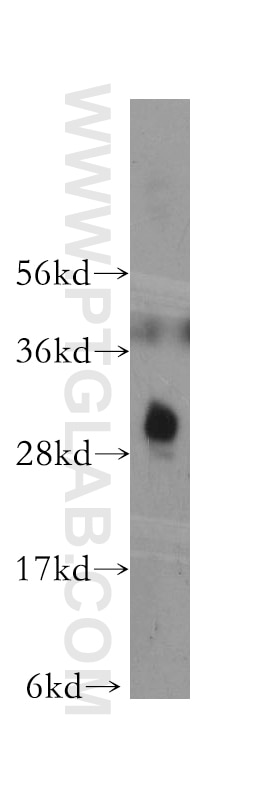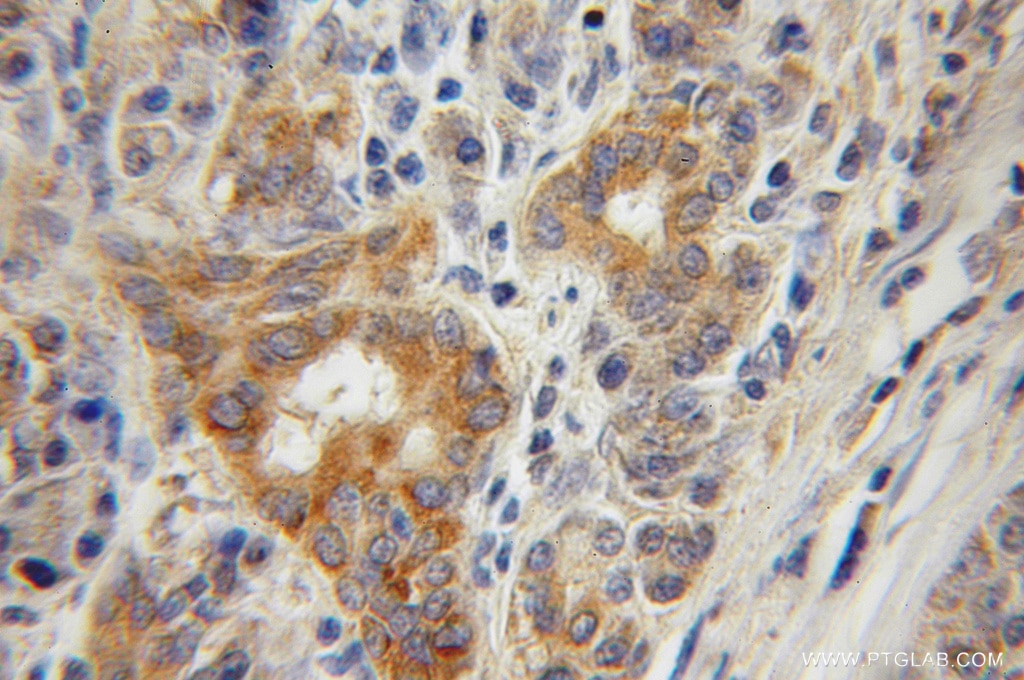Tested Applications
| Positive WB detected in | human kidney tissue, HepG2 cells, K-562 cells |
| Positive IHC detected in | human pancreas cancer tissue Note: suggested antigen retrieval with TE buffer pH 9.0; (*) Alternatively, antigen retrieval may be performed with citrate buffer pH 6.0 |
Recommended dilution
| Application | Dilution |
|---|---|
| Western Blot (WB) | WB : 1:200-1:1000 |
| Immunohistochemistry (IHC) | IHC : 1:20-1:200 |
| It is recommended that this reagent should be titrated in each testing system to obtain optimal results. | |
| Sample-dependent, Check data in validation data gallery. | |
Product Information
11116-1-AP targets CTDSP2 in WB, IHC, ELISA applications and shows reactivity with human, mouse, rat samples.
| Tested Reactivity | human, mouse, rat |
| Host / Isotype | Rabbit / IgG |
| Class | Polyclonal |
| Type | Antibody |
| Immunogen |
CatNo: Ag1601 Product name: Recombinant human CTDSP2 protein Source: e coli.-derived, PGEX-4T Tag: GST Domain: 1-271 aa of BC065920 Sequence: MEHGSIITQARREDALVLTKQGLVSKSSPKKPRGRNIFKALFCCFRAQHVGQSSSSTELAAYKEEANTIAKSDLLQCLQYQFYQIPGTCLLPEVTEEDQGRICVVIDLDETLVHSSFKPINNADFIVPIEIEGTTHQVYVLKRPYVDEFLRRMGELFECVLFTASLAKYADPVTDLLDRCGVFRARLFRESCVFHQGCYVKDLSRLGRDLRKTLILDNSPASYIFHPENAVPVQSWFDDMADTELLNLIPIFEELSGAEDVYTSLGQLRAP Predict reactive species |
| Full Name | CTD (carboxy-terminal domain, RNA polymerase II, polypeptide A) small phosphatase 2 |
| Calculated Molecular Weight | 31 kDa |
| Observed Molecular Weight | 31 kDa |
| GenBank Accession Number | BC065920 |
| Gene Symbol | CTDSP2 |
| Gene ID (NCBI) | 10106 |
| RRID | AB_2087086 |
| Conjugate | Unconjugated |
| Form | Liquid |
| Purification Method | Antigen affinity purification |
| UNIPROT ID | O14595 |
| Storage Buffer | PBS with 0.02% sodium azide and 50% glycerol, pH 7.3. |
| Storage Conditions | Store at -20°C. Stable for one year after shipment. Aliquoting is unnecessary for -20oC storage. 20ul sizes contain 0.1% BSA. |
Background Information
CTDSPs are C-class phosphatases that act on Ser 5 of the Pol II C-terminal domain (CTD) to decrease transcription [PMID:15681389]. CTDSP enzymatic activity is required for REST function, and knockdown of CTDSP induces the neuronal differentiation of mouse embryonic carcinoma P19 cells. CTDSP2 has been shown to enhance TGF-β signaling by the dephosphorylation of SMAD proteins and attenuates androgen receptor-mediated transcription [PMID:16724108]. It negatively regulates RNA polymerase II transcription by controlling the transition from initiation/capping to processive transcript elongation. It was recruited by REST to neuronal genes that contain RE-1 elements, leading to neuronal gene silencing in non-neuronal cells[PMID: 12721286].
Protocols
| Product Specific Protocols | |
|---|---|
| IHC protocol for CTDSP2 antibody 11116-1-AP | Download protocol |
| WB protocol for CTDSP2 antibody 11116-1-AP | Download protocol |
| Standard Protocols | |
|---|---|
| Click here to view our Standard Protocols |










